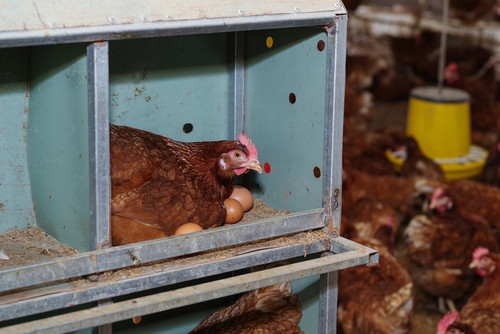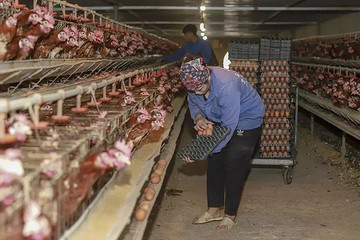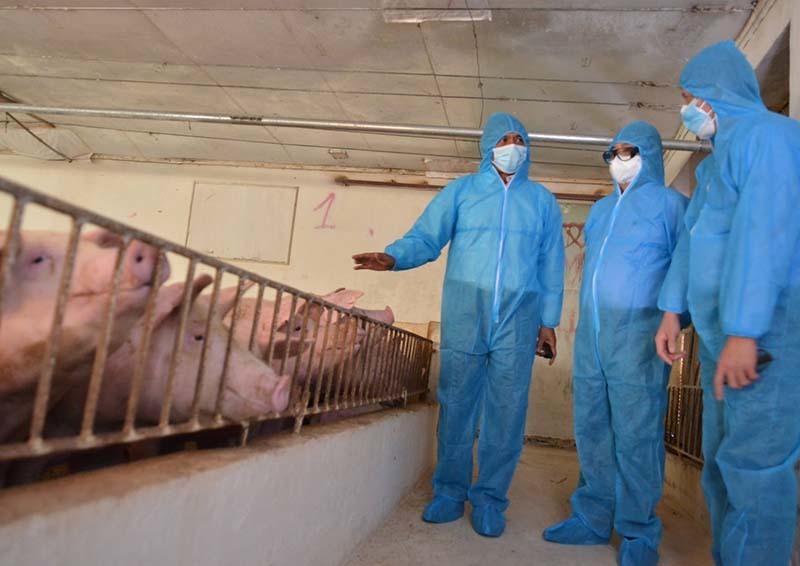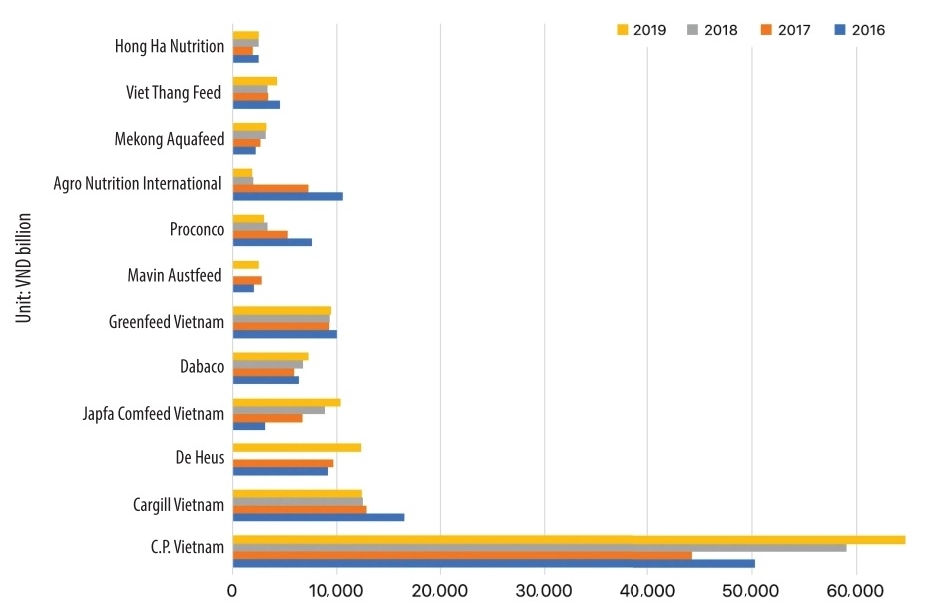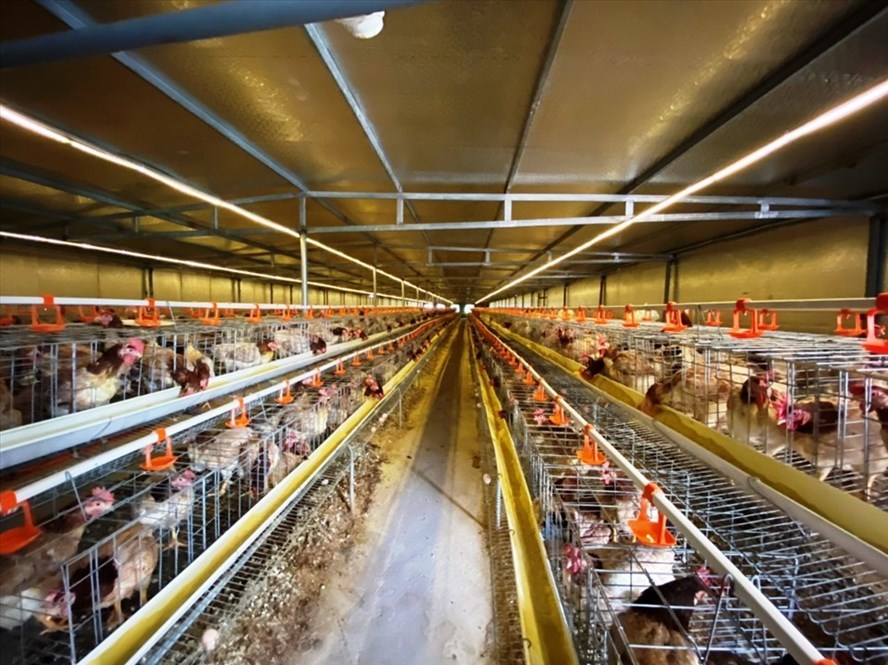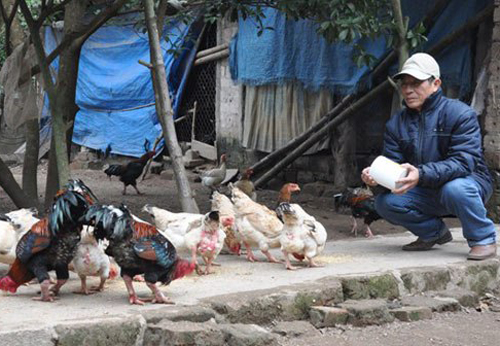- © Copyright of Vietnamnet Global.
- Tel: 024 3772 7988 Fax: (024) 37722734
- Email: evnn@vietnamnet.vn
livestock
Update news livestock
Ethical livestock-farming a growing trend in Vietnam
In addition to standards in hygiene, the livestock industry is having to pursue ethical standards while the food processing industry has set stricter rules for materials.
US$9 billion burden for farmers as feed prices rise
For more than a year, the price of animal feed has increased 10 times in a row and is rising further.
Farmers make modest profits and merchants pocket big money, so who’s to blame?
Experts have pointed out that the distribution of benefits in the livestock production chain has become unreasonable. Farmers who make products only earn a modest profit, while most of the money goes to merchants’ pockets.
Rising material and feed costs bridle husbandry companies
Husbandry companies are being squeezed on two fronts, with prices for poultry and cattle stagnating and falling in some cases while animal feed material prices have been surging, pushing many to halt production or even declare bankruptcy.
Vietnam to develop livestock sector
PM Nguyen Xuan Phuc has approved a plan to develop the livestock sector for the 2021-2030 period with a view to 2045.
Opportunities await VN husbandry sector over next decade
The outlook for Vietnam's livestock market was bright over the next ten years as the population grows to nearly 107 million with an average income of US$10,000, said Minister of Agriculture and Rural Development Nguyen Xuan Cuong.
Vietnam's livestock exports expected to fetch US$1.2 billion this year
 The livestock and related sectors’ exports were worth US$855.4 million in the first nine months of the year and is expected to reach $1.2 billion for the year, according to the Ministry of Agriculture and Rural Development.
The livestock and related sectors’ exports were worth US$855.4 million in the first nine months of the year and is expected to reach $1.2 billion for the year, according to the Ministry of Agriculture and Rural Development.
Animal feed market in the hands of FIEs
VietNamNet Bridge - Analysts estimate that foreign invested enterprises (FIEs) now hold 80 percent of the animal feed market share, while Vietnamese enterprises only have 20 percent.
Are FIEs the cause behind the increase in rising pork prices in VN?
VietNamNet Bridge - Vietnamese livestock companies believe that foreign-invested enterprises are involved in the current pork price escalation, and that “the livestock industry may fall into foreigners’ hands just in one or two years”.
VN livestock industry in danger as imports are too cheap
VietNamNet Bridge - Vietnamese livestock farmers are under pressure as their products are uncompetitive in comparison with surprisingly cheap poultry and animal meat imports.
Vietnam's livestock, poultry meat market worth $18 billion
More than 3 million tons of meat were consumed in Vietnam in 2016, according to Euromonitor. With a value of $18 billion, Vietnam is the third largest market for meat in Asia, behind China and India.
Cheap meat imports affecting domestic animal breeders
VietNamNet Bridge - The average price for imported pork is now $1.2 per kilo, or VND27,000, while the domestic pork price has dropped dramatically to a 30-year low.
Authorities urged to crack down on drugs for livestock
VietNamNet Bridge – Minister of Agriculture and Rural Development Cao Duc Phat urged localities to control the use of prohibited substances in livestock breeding and suggested stricter punishments for violations.
Big livestock farms cause serious pollution
Concentrated animal feed operations (CAFO) are better equipped than household-run livestock farms, but many of them lack waste management systems, causing serious pollution in rural areas.
14 types of fees imposed on a chicken
VietNamNet Bridge – The overlapping fees in the poultry industry have increased the cost of production and circulation.
Vietnamese farmers in misery because of imported meat
VietNamNet Bridge – In the last months of the year, Vietnam’s imports of meat have soared.Despite import taxes, many kinds of imported meat are cheaper than domestic products.
Beef environment cost 10 times that of other livestock
A new study suggests that the production of beef is around 10 times more damaging to the environment than any other form of livestock.
BUSINESS IN BRIEF 27/5
Denmark studies technology use by Vietnamese firms; US imposes anti-dumping tax on Vietnam’s steel pipe; Vietnam inflation held steady in May; Hanoi to host Mid-term Vietnam Business Forum 2014
BUSINESS IN BRIEF 6/4
Rice traders report losses in 2013; Rubber price plunges on scant buying from China, M’sia; Consolidated bank SCB posts up profit; First registry firm launches IPO; Livestock export potential untapped
BUSINESS IN BRIEF 19/3
VN's President commends Nikkei Group; SBV cuts interest rates; Can Tho ready for new air routes; Processing, manufacturing industry attract most FDI projects; SBV to spend VND8 trillion on rice; VND10 trillion for livestock farming revamp
